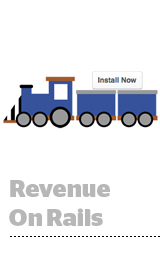 Facebook’s app-install ads got a little face-lift Thursday with the launch of dynamic ads for mobile app installs.
Facebook’s app-install ads got a little face-lift Thursday with the launch of dynamic ads for mobile app installs.
The ads, available through the Facebook Audience Network, let advertisers target users with dynamic app-install ads based on their recent product browsing history.
Facebook first started testing the ads last summer along with an app event optimization product that drills down on the users most likely to take an in-app action after download, whether that’s making a purchase or completing a level in a game.
“There’s been a big shift from just focusing on volume to focusing on volume and value,” said Christine De Martini, app ads marketing lead at Facebook.
The two products are meant to work together – install followed by in-app actions and re-engagement, she said.
“Cross-functional ability between the web and apps and showing a relevant product after the install increases the chances that a customer will make a purchase,” she said. “And as we go into the holiday season, especially, there is an increase in app activity and an increase in the importance of driving bottom-line results.”
App-install ads are still a monster business for Facebook. Citi Research predicts Facebook will have helped trigger around 4 billion total downloads by 2017.
Although Facebook doesn’t break out its app-install ad revenue, industry sources estimate it represents somewhere between 10% and 20% of total revenue, which makes it a likely multibillion-dollar business.
A lot of the app-install ad demand comes from game developers – and they’ve got the cash to spend, as evidenced by the fact that several are also spending on high-profile TV campaigns – but travel and ecommerce companies are also taking advantage, De Martini said.
Hotels.com, for example, has been experimenting with dynamic app ads to drive installs, which it uses to find people who are in the planning phase for upcoming travel. The travel booking site has seen lower user acquisition costs with the format compared to static retargeting campaigns.
Based on last year’s F8 conference, Facebook’s long-term vision is predicated on the notion of a post-app world in which messaging apps are the future hub of all things, in a sense removing the need to even download an app at all.
But in the meantime, app-install ads remain a monetization workhorse for developers and a cash cow for Facebook.
“We’re still seeing momentum in the app market,” De Martini said. “And it’s important to think about producing the right tools and services for now so that businesses can connect to consumers where it makes the most sense.”
This post was syndicated from Ad Exchanger.

More Stories
Scroll Media boosts in-game advertising with new feature
Kiwi filmmaker spotlights media struggles at top global awards
T-Mobile Has Appointed Kristin Harrer As Senior Vice President and Chief Brand Officer